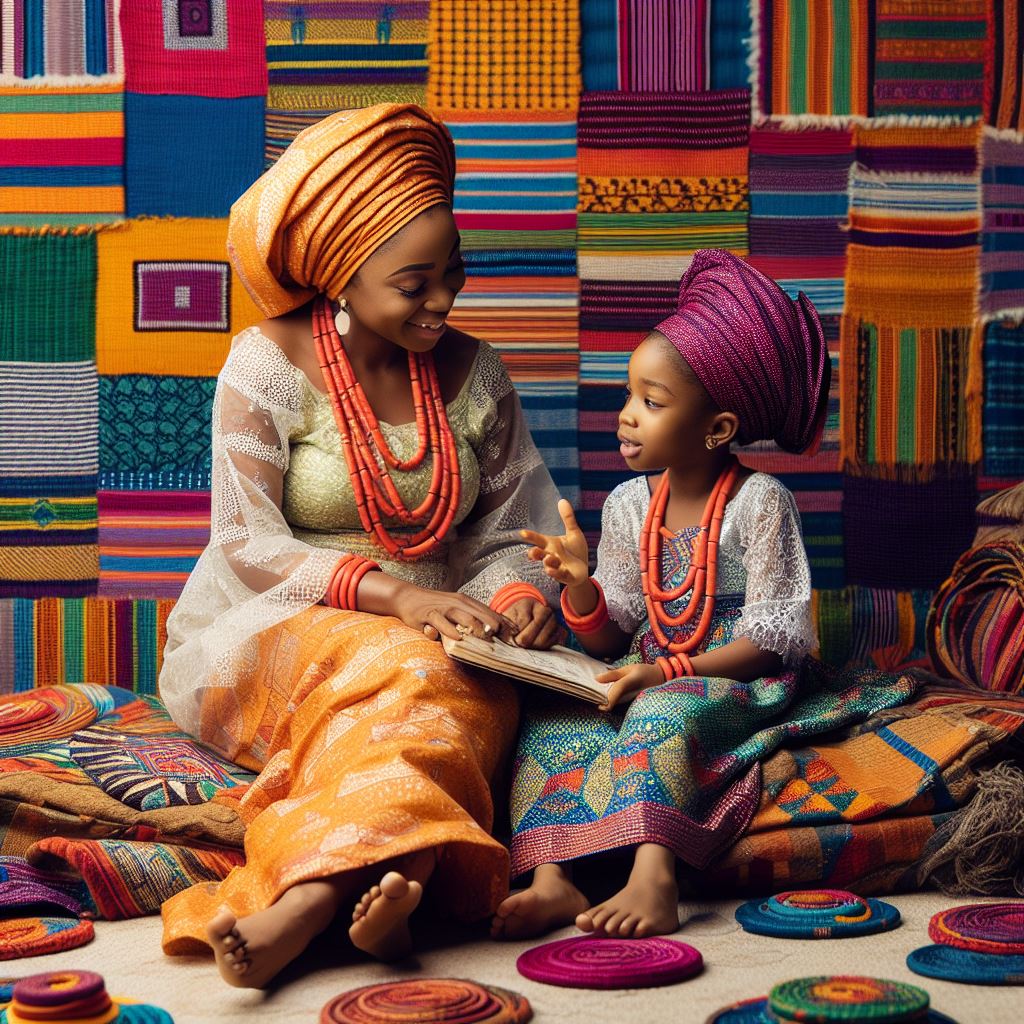Introduction
Preconceived notions shape gender stereotypes, defining roles and attributes attributed to men and women.
Addressing gender stereotypes in Nigeria is crucial for promoting equality and fairness.
The purpose of this blog post is to educate Nigerian parents about the importance of avoiding gender stereotypes.
Gender stereotypes limit individuals’ opportunities and perpetuate discrimination based on gender.
Nigerian parents play a pivotal role in shaping their children’s beliefs and behaviors.
By avoiding gender stereotypes, parents can promote inclusivity, self-confidence, and independence in their children.
Nigerian parents should avoid assigning specific roles and responsibilities based on gender.
Encouraging both boys and girls to pursue their interests and talents without limitations is essential.
Parents should provide equal opportunities for education, career choices, and personal development.
Challenging traditional gender norms will help break the cycle of inequality in Nigerian society.
Teaching children that all individuals deserve respect and equal treatment regardless of their gender.
Parents should be proactive in exposing their children to diverse role models and challenging stereotypes in media and society.
Avoiding gender stereotypes will pave the way for a more progressive and inclusive Nigerian society.
By empowering children to embrace their individuality and challenging societal norms, change can occur.
In essence, Nigerian parents have a responsibility to actively steer away from gender stereotypes to promote equality and acceptance.
Parenting Made Just for You
Get personalized Parenting Solutions tailored to your child’s needs. Transform your parenting journey with expert guidance in 1-3 days.
Get StartedDefinition and Explanation of Gender Stereotypes
A. Definition of gender stereotypes
Predefined beliefs dictate how individuals should behave, think, or feel based on their gender.
These expectations often limit the development and opportunities of both males and females.
B. Common types of gender stereotypes in Nigerian society
- The expectation that boys should be strong and tough: Boys are often taught to suppress their emotions and exhibit aggressive behavior, which can hinder their emotional development.
- The belief that girls should be submissive and nurturing: Girls are often raised to prioritize others’ needs over their own and are discouraged from pursuing leadership positions or careers that are considered male-dominated.
- The assumption that boys are better at science and math: Due to this stereotype, girls may not receive the same encouragement and support to excel in these subjects, limiting their potential.
- The idea that girls should focus on their appearance: This stereotype can lead to a preoccupation with superficial qualities and undermine their self-esteem and confidence in pursuing other areas of personal growth.
C. Impact of gender stereotypes on children and their development
- Limiting career aspirations: Gender stereotypes can restrict children’s career choices based on societal expectations.
Discouragement may deter girls from STEM, while boys might encounter barriers in feminine career paths. - Imposing rigid roles: By adhering to gender stereotypes, children may feel pressured to fit into specific roles, limiting their self-expression and individuality.
For example, boys may suppress their creativity, while girls may feel obligated to prioritize caregiving over personal goals. - Hindering emotional well-being: Boys may suffer from suppressed emotions due to societal expectations of stoicism, leading to mental health issues such as anxiety and depression.
Similarly, girls may experience anxiety and low self-esteem due to the pressure to conform to unrealistic beauty standards. - Inequality and bias: Gender stereotypes perpetuate gender inequality and reinforce unequal power dynamics between males and females.
This can result in discrimination, sexism, and biased treatment in various aspects of life such as education, employment, and relationships. - Impeding healthy relationships: Gender stereotypes can hinder the development of healthy relationships as individuals may struggle to communicate effectively and understand each other’s needs.
It can create barriers and misunderstandings, leading to conflict and resentment.
In fact, gender stereotypes in Nigerian society have significant implications for children’s development and overall well-being.
By recognizing and challenging these stereotypes, parents can create a more inclusive and equal environment for their children to thrive.
It is crucial to promote individuality, encourage diverse interests and aspirations, and foster healthy relationships based on mutual respect and understanding.
Breaking free from gender stereotypes is essential in creating a more progressive and equal society.
Read: Nurturing Gender Equality in Nigerian Homes
The Role of Nigerian Parents in Perpetuating Gender Stereotypes
A. Influence of cultural and societal beliefs on parents’ attitude towards gender roles
- Cultural and societal beliefs shape Nigerian parents, emphasizing traditional gender roles in their influence.
- They believe that men should be breadwinners and women should focus on domestic responsibilities.
- This mindset leads parents to have biased attitudes towards gender roles and perpetuate stereotypes.
- In Nigerian culture, people view gender as defining roles and responsibilities, determined by characteristics.
- Generations actively pass down these deeply ingrained beliefs, fostering their continuity through time.
B. Parental actions that reinforce gender stereotypes
1. Imposing different expectations on sons and daughters
- Nigerian parents often have different expectations for sons and daughters, reinforcing gender stereotypes.
- Parents commonly steer sons toward strength, independence, and assertiveness, while often expecting daughters to nurture and submit.
- This creates a disparity in opportunities and limits the potential of both genders.
- Sons may feel pressured to conform to a certain masculine identity, while daughters may feel limited in their aspirations.
2. Encouraging specific interests and activities based on gender
- Nigerian parents tend to encourage specific interests and activities based on their child’s gender.
- Boys are pushed towards sports, technology, and careers in STEM fields, while girls are directed towards domestic skills and arts.
- This limits their exposure to different opportunities and reinforces gender stereotypes.
- Children should be encouraged to explore a wide range of interests, regardless of their gender.
3. Allocating household chores based on gender
- In many Nigerian households, household chores are divided based on gender.
- Girls are assigned tasks such as cooking, cleaning, and taking care of younger siblings, while boys are exempted from these responsibilities.
- This reinforces the idea that domestic work is solely a woman’s responsibility, perpetuating gender stereotypes.
- Parents should encourage equal participation in household chores to break these stereotypes.
4. Reinforcing traditional gender roles through media consumption
- Nigerian parents often expose their children to media that reinforces traditional gender roles.
- Parents permit sons action movies, gaming; urge daughters rom-coms, doll play, fostering gender-specific activities.
- This further reinforces stereotypes and shapes their perception of gender roles.
- Parents should be mindful of the media their children consume and promote diverse representations of gender.
In short, Nigerian parents play a significant role in perpetuating gender stereotypes through their attitudes and actions.
Influenced by cultural and societal beliefs, they impose different expectations on sons and daughters, encourage specific interests based on gender, allocate household chores unequally, and reinforce traditional gender roles through media consumption.
Breaking these stereotypes requires a shift in parental mindset and a conscious effort to provide equal opportunities and support for all children, regardless of their gender.
Read: Gender Identity: A Guide for Nigerian Parents

Negative Consequences of Gender Stereotypes
A. Limiting opportunities for both boys and girls
- Gender stereotypes confine children to certain roles and limit their potential.
- Girls may be discouraged from pursuing careers in male-dominated fields, stifling their aspirations.
- Boys may face pressure to conform to masculine norms, hindering their exploration of other interests.
- Both genders miss out on various opportunities for growth and development.
B. Contributing to unequal power dynamics and gender inequality
- Gender stereotypes reinforce patriarchal norms, perpetuating power imbalances between sexes.
- Men are seen as natural leaders, while women are expected to be submissive and nurturing.
- This contributes to gender inequality in positions of power and decision-making roles within society.
- Such dynamics foster discrimination, limiting opportunities for women and reinforcing gender biases.
C. Negative impact on mental health and self-esteem
- Gender stereotypes can lead to feelings of inadequacy and low self-esteem in those who don’t conform.
- Girls who are told they should be passive can develop a sense of powerlessness.
- Boys who are discouraged from showing emotion may struggle with suppressing their feelings.
- These pressures can lead to anxiety, depression, and other mental health issues.
D. Hindering personal growth and fulfillment
- Gender stereotypes limit individuals’ ability to explore their authentic selves.
- They discourage boys and girls from pursuing their passions and interests freely.
- Girls may feel pressured to prioritize marriage and motherhood over personal and career goals.
- Boys may be discouraged from pursuing creative or nurturing endeavors.
- This hinders personal growth, fulfillment, and the potential for a well-rounded life.
Gender stereotypes have far-reaching negative consequences, affecting individuals’ opportunities, power dynamics, mental health, and personal growth.
It is crucial for Nigerian parents to reject these stereotypes and foster an environment of equality and acceptance for their children.
Read: Raising Boys and Girls: Tips for Nigerian Families
Unveil the Perfect Name that Tells Your Family's Story
Let us help you find a name that embodies your family's values, traditions, and dreams. Our personalized consultation weaves cultural insights to create a name that's uniquely yours.
Get StartedDiscover More: Natural Fertility Boosters: Nigerian Herbs
Steps Nigerian Parents Can Take to Avoid Gender Stereotypes
A. Educate themselves on gender equality and stereotypes
Parents should actively seek information and resources on gender equality and stereotypes.
They should understand the harmful effects of perpetuating gender stereotypes.
Educating themselves will enable them to challenge societal norms and promote gender equality.
B. Encourage open discussions about gender with their children
Parents should create a safe and open space for their children to talk about gender.
Engaging in meaningful conversations will help children understand and question stereotypes.
Encouraging questions and discussions will foster critical thinking and awareness.
C. Provide equal opportunities and support for all interests and aspirations
Parents should provide their children with equal opportunities regardless of their gender.
They should support their children’s interests and encourage them to pursue any field they desire.
Giving equal opportunities will break gender barriers and empower children to follow their passions.
D. Emphasize individuality and personal choice
Parents should emphasize the importance of individuality and personal choice.
They should teach their children that they can express themselves freely without conforming to stereotypes.
Emphasizing individuality will promote self-confidence and independence in their children.
E. Be conscious of media influence and promote diverse representation
Parents should monitor and regulate their children’s exposure to media and advertisements.
They should promote diverse representation in books, movies, and TV shows to counter stereotypes.
Being conscious of media influence will help in shaping their children’s perspective on gender.
F. Encourage empathy, respect, and understanding among siblings
Parents should teach their children the values of empathy, respect, and understanding towards each other.
They should foster a supportive and inclusive environment where siblings can appreciate their differences.
Encouraging these values will help break down gender stereotypes within the family.
Read: Gender Roles in Nigeria: What Parents Should Know
Conclusion
Gender stereotypes can have harmful effects on children, limiting their potential and perpetuating inequality.
Nigerian parents have the power to change societal norms by actively challenging traditional gender roles and expectations.
Promoting gender equality and individuality can lead to happier and more fulfilled children who can contribute positively to society.
By avoiding gender stereotypes, Nigerian parents can create a more inclusive and equitable society for their children.
It is essential for parents to challenge traditional gender norms and foster an environment where children can develop their unique talents and interests.
Breaking free from stereotypes, we empower all to be valued for their unique abilities, shaping an inclusive world.
Let us work together to build a society where gender equality is the norm and where every child can thrive and reach their full potential.




